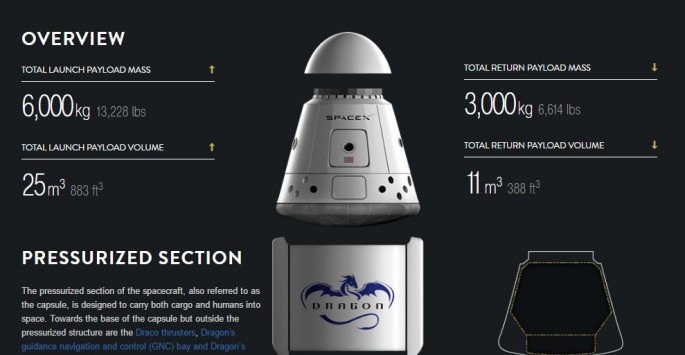SpaceX said it now plans to send the first astronauts into space aboard its Dragon spacecraft in 2018 from 2017.
It also confirmed plans first reveled by NASA to also delay uncrewed test flights of Dragon. SpaceX describes Dragon as a "free-flying spacecraft designed to deliver both cargo and people to orbiting destinations."
It said Dragon made history in 2012 when it became the first commercial spacecraft in history to deliver cargo to the International Space Station (ISS) and safely return cargo to Earth, a feat previously achieved only by governments.
"We are carefully assessing our designs, systems, and processes taking into account the lessons learned and corrective actions identified," said SpaceX about the delay. "Our schedule reflects the additional time needed for this assessment and implementation."
The first crewed flight in a Dragon spacecraft was originally set for late 2017. SpaceX now says it expects the uncrewed test by November 2017. As a result of the delay, the first crewed launch is now expected to launch in May 2018.
SpaceX is also having to deal with the fallout from the explosion on the launch pad last September of a Falcon 9 rocket that was about to life-off. That mishap shut down SpaceX launches, which will only resume after the company ascertains the exact cause of the catastrophic explosion that also destroyed the rocket's satellite payload.
A joint investigation by SpaceX, NASA, the U.S .Air Force, and the Federal Aviation Administration attributed the explosion to a problem with SpaceX's fueling process.
SpaceX uses a cryogenic propellant, or a super-chilled mixture of liquid oxygen and kerosene, as rocket fuel for Falcon 9. This unique fuel not used by other space launch firms or by NASA has the advantage of providing more powerful thrust compared to other rocket fuels, but at an increased risk of instability.
SpaceX first attributed the explosion to an "anomaly" on the launch pad. Despite the September mishap, SpaceX's success rate for launches stands at over 90 percent. And it does launches much cheaper than NASA or its other commercial competitors.



























